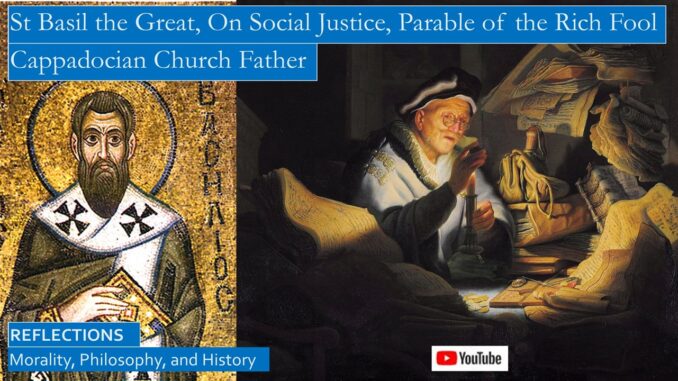
Should the wealthy continually increase their savings? How much should the wealthy give to the poor? Would middle-class Americans be considered wealthy by St Basil?
How does greed lead to envy and covetousness?
How can we store our wealth in our storehouses in heaven? How can we fill our storehouses in the hungry bellies of the poor?
Is poverty the fault of the poor? Should the wealthy only give alms to the deserving poor?
This reflection follows St Basil the Great’s Homily “To the Rich Man,” which is included in this Social Justice collection. We discuss St Basil’s life story as one of the three Cappadocian Church Fathers in the fourth century.
Was St Basil Woke? Basil the Great On Social Justice, Homily To the Rich Man
https://seekingvirtueandwisdom.com/st-basil-the-great-on-social-justice/
https://youtu.be/PT_I5IrZGzY
We are planning another reflection on his homilies “In Time of Famine and Drought” and “Against Those Who Lend at Interest.” This collection of homilies “On Social Justice” was delivered in response to a severe drought and famine that struck Caesarea.
St Basil on Social Justice: Assisting the Poor During a Famine in a Roman Province
https://seekingvirtueandwisdom.com/st-basil-on-social-justice-assisting-the-poor-during-a-famine-in-a-roman-province/
https://youtu.be/c8YXs7y4RrU
YouTube video for this reflection: https://youtu.be/UDQIZ81VfsY
ST BASIL AND THE PARABLE OF THE RICH FOOL
St Basil’s Homily, I Will Tear Down My Barns, reflects on the Parable of the Rich Fool. But we must remember, when reading Scriptures, to always read the verses and chapters preceding and following the Scriptures we are interested in. All too often people do not read the preamble to this parable, which ties envy and covetousness to greed:
One of the multitude said to Jesus, “Teacher, bid my brother divide the inheritance with me.” But Jesus said to him, “Man, who made me a judge or divider over you?” And he said to them, “Take heed, and beware of all covetousness; for a man’s life does not consist in the abundance of his possessions.”
We have previously reflected on St Basil’s homilies on envy, plus a series of reflections on envy, including reflections by Martin Luther, Dr Laura, and the Catholic Catechism and the Church Fathers.
St Basil the Great On Envy
http://www.seekingvirtueandwisdom.com/st-basil-on-envy/
https://youtu.be/XnFUrFKoF7s
Martin Luther’s Catechisms on Do Not Envy, and Confronting Luther’s Anti-Semitism
http://www.seekingvirtueandwisdom.com/martin-luther-large-catechism-on-decalogue-do-not-envy-and-anti-semitism/
https://youtu.be/FQmBggJAhKg
Do Not Envy: Dr Laura and Her Rabbi Stewart Vogel on Ten Commandments
http://www.seekingvirtueandwisdom.com/dr-laura-and-her-rabbi-stewart-vogel-on-ten-commandments-do-not-envy/
https://youtu.be/4G-k8NfvZJ8
Catholic Catechism, Do Not Covet, CCC 2514-2516
http://www.seekingvirtueandwisdom.com/catholic-catechism-do-not-covet-ccc2214-2216/
https://youtu.be/vhte2s1ITNU
This verse also teaches those of us who are teachers or preachers: when we are asked a question, the answer should be directed to all who are listening, so all may benefit from the teachings.
And Jesus told them a parable: “The land of a rich man brought forth plentifully; and he thought to himself, ‘What shall I do, for I have nowhere to store my crops?’ And he said, ‘I will do this: I will pull down my barns and build larger ones; and there I will store all my grain and my goods. And I will say to my soul, Soul, you have ample goods laid up for many years; take your ease, eat, drink, be merry.’ But God said to him, ‘Fool! This night your soul is required of you; and the things you have prepared, whose will they be?’ So is he who lays up treasure for himself and is not rich toward God.”[1]
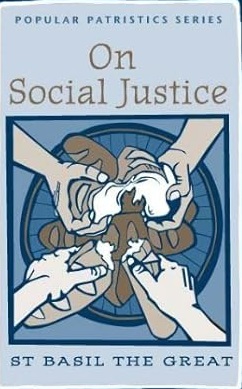
We see this in Rembrandt’s famous painting of the Rich Fool counting the coins he is hoarding with the candlelight barely illuminating the darkness of his soul. Rembrandt is known for the dark backgrounds in his paintings, and here his detailed rendering of his face wrinkled with his continual striving for wealth tell us of a life wasted in selfish pursuits, of virtue that could have been.
St Basil rues: “The Rich Fool was made miserable by abundance, wretched by the good things he possessed, and still more wretched by the good things he still expected to receive.” “He does not rejoice at all the good things he has in store, but is rather pricked by the heart by the wealth that slips through his fingers, lest perhaps, as it overflows the storehouses, some of it should trickle down to those outside his walls, so as to become a source of aid for those in need.”
As St Basil observes, the Rich Fool did not keep a word of the commandments: “Do not neglect to do good for the needy,” and “Do not let mercy and loyalty forsake you, and “Share your bread with the hungry.” “He did not heed the urgings of all the prophets and teachers.”
St Basil teaches us that whether we receive sufferings or blessings, both these should increase our two-fold Love of God and love of neighbor. St Basil teaches us:
“Temptations come in two forms. Sometimes affliction proves the heart like gold in a furnace, testing its purity by means of suffering. But for many, it is prosperity of life that is the greatest trial. For it is equally difficult to preserve one’s soul from despair in hard times, and to prevent it from becoming arrogant in prosperous circumstances.”
Who benefits more, those who contribute, or those who receive? St Basil teaches us, Through the fruits of your good works, “you produce for yourself, since the grace of good works redounds to those who perform them. You gave to the poor, and in so doing not only did you make what you gave truly your own, but you received back even more. For just as grain, when it falls upon the ground, brings forth an increase for the one who scatters it, thus also bread cast to the hungry yields considerable profit at a later time.” [2]
This sentiment is most clearly taught in Jesus’ exhortation in the Sermon on the Mount:
“Do not lay up for yourselves treasures on earth, where moth and rust consume and where thieves break in and steal, but lay up for yourselves treasures in heaven, where neither moth nor rust consumes and where thieves do not break in and steal. For where your treasure is, there will your heart be also.”[3]
This is illustrated by the interesting story of how the apostle St Thomas accepted substantial sums to build a sumptuous palace for a King in India, but instead gave the money to the poor. The king was quite angry when Thomas did not repent of this deception, but decided not to execute our saint when a departed relative appeared to him in a vision, thanking the king for the palace built where Elvis sings with his choir, where he too had been reserved a room fit for a king. This is not scriptural and is a fanciful story, since the author takes the suggestion that Thomas is a twin literally, imagining that Thomas was the twin brother of Jesus, which totally wrecks the doctrine of the Incarnation.
Do Not Envy: Lessons from Eeyore’s Birthday Party and the Gnostic Acts of Thomas
https://seekingvirtueandwisdom.com/do-not-envy-lessons-from-eeyores-birthday-party-and-the-gnostic-acts-of-thomas/
https://youtu.be/Nq_UwpKe84A
Likewise, St Basil the Great teaches us that “if we want storehouses to store our wealth, we have them in the stomachs of the poor. Lay up for yourself treasure in heaven. The riches deposited there are not devoured by moths, nor are they spoiled by corruption, nor do thieves break in and steal them. But you reply, ‘I will give to the needy when I have filled the second set of barns.’”
St Basil continues, “You are so sure that the years of your life will be many; beware, lest death the pursuer catch up to you sooner than you expect! And even your promise is not a token of goodness, but rather a sign of your evil intent.”
St Basil warns: “The hungry are perishing, the naked are freezing to death, the debtors are unable to breathe, and will you put off showing mercy until tomorrow?” “Demolish every storehouse of greed, pull down the roofs, tear away the walls, expose the moldering grain to the sunlight, lead forth from prison the fettered wealth, vanquish the gloomy vaults of Mammon.”
St Basil continues: “Though you speak to yourself in secret, your words are examined in heaven. Thus, it is from heaven that you will receive your reply. But what sort of things do you say to yourself? ‘Soul, you have ample goods laid up for many years: relax, eat, drink, and be merry day after day.’ Oh, what senselessness! If you had the soul of a pig, what better news could you have given it?”
St Basil asks us: “Why then are you wealthy while another is poor? Why else, but so that you might receive the reward of benevolence and faithful stewardship, while the poor are honored for patient endurance in their struggles? But you, stuffing everything into the bottomless pockets of your greed, assume that you wrong no one, yet how many do you in fact dispossess?”
St Basil recounts the Scriptures: “How can I bring the sufferings of the poor to your attention, so that you might realize from what misery you are collecting riches for yourself? Oh, how desirable will these words appear to you on the day of judgment: ‘Come, you who are blessed by my Father, inherit the kingdom prepared for you from the foundation of the world; for I was hungry and you gave me food, I was thirsty and you gave me something to drink, I was naked and you gave me clothing.’”
St Basil repeats what Jesus warned us: “But how great will be the trembling, the sweat, and the darkness that surround you when you hear the sentence, ‘You who are accursed, depart from me into the eternal fire prepared for the devil and his angels; for I was hungry and you gave me no food, I was thirsty and you gave me nothing to drink, I was naked and you did not give me clothing.’” [4]
Notice how this critical lesson is repeated, first from the perspective of the poor, then from the perspective of the uncaring wealthy man, who perhaps blames the poor for their poverty. If they had only attended the same expensive schools as he did, then they could have pulled themselves up by their bootstraps without help from me!
DISCUSSING THE SOURCES
This writing by St Basil the Great, On Social Justice, is part of the Popular Patristic Series of St Vladimir’s Seminary Press. Usually these are excellent translations, some volumes also have the Greek, but not this volume. And the introduction and footnotes were excellent. They didn’t discuss how many ancient manuscripts survived, but likely multiple copies did survive, since the Cappadocian Church Fathers were beloved by the early church.
We will be reflecting on the next steps on avarice and poverty we are climbing in the Ladder of Divine Ascent. In his commentary, Father Vassilios Papavassiliou references both St Basil’s On Social Justice and St John Chrysostom’s On Wealth and Poverty, which are homilies on the Parable of Lazarus and his friend, the Rich Young Man.
[1] https://www.biblegateway.com/passage/?search=luke%2012%3A13-21&version=RSVCE
[2] St Basil the Great, On Social Justice, translated by C Paul Schroeder (Crestwood, NY: St Vladimir’s Seminary Press, 2009, originally after 369 AD), I Will Tear Down My Barns, pp. 59-62.
[3] https://www.biblegateway.com/passage/?search=matthew%206%3A19-21&version=RSVCE
[4] St Basil the Great, On Social Justice, translated by C Paul Schroeder, I Will Tear Down My Barns, pp. 62-71.

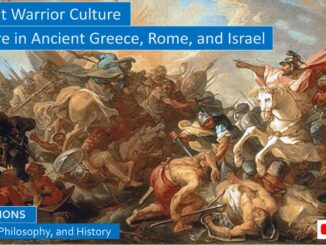
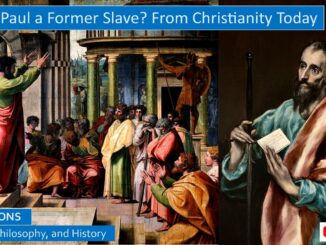
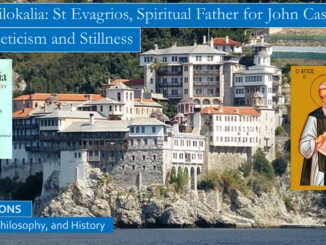
Be the first to comment